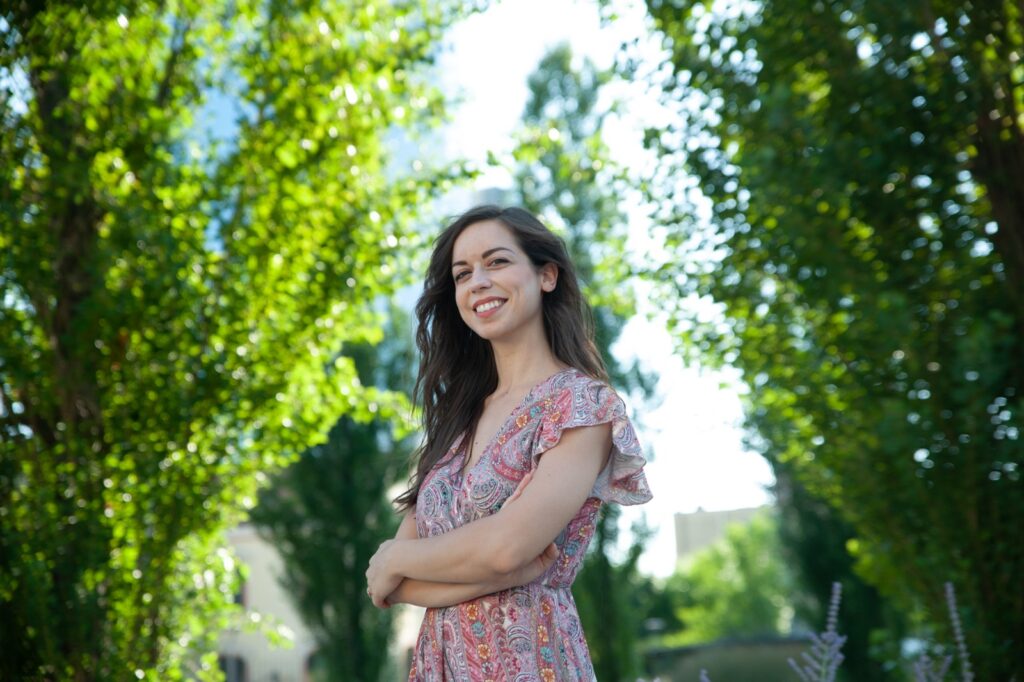Il metodo Busy Bee
{ English version below }
Perché scegliere il nostro metodo?
Cominciamo con il dire che il nostro è un metodo educativo all’avanguardia, ben lontano dall’idea di alunni seduti in religioso silenzio in una classe in cui l’insegnante è l’unica a parlare.
L’approccio che vede lo studente come elemento passivo è obsoleto e per niente efficace.
Il metodo che utilizziamo è innanzitutto incentrato sullo studente: ogni lezione viene personalizzata, non solo in base al livello linguistico ed alle esigenze d’apprendimento, ma anche in base alla personalità dello studente. Chi l’ha detto che non si possa imparare nuovi vocaboli cantando la propria canzone preferita o guardando una scena particolare di un film? Il successo è assicurato!
Oltre alla modalità di presentazione, è importante anche la modalità di analisi: spiegare una nuova regola grammaticale usando parole tecniche difficili da memorizzare, non è né semplice da recepire né efficace per l’apprendimento. Il metodo che utilizziamo pone lo studente davanti ad una determinata regola grammaticale e viene guidato verso la “decodifica” della stessa grazie a domande mirate ad affinare l’intuito, in modo che sia lo studente stesso a “scoprirne” il meccanismo, senza doverlo leggere e successivamente memorizzare, semplicemente capendolo.
Nelle nostre lezioni non mancano mai giochi ed attività ricreative, crediamo che una parte fondamentale dello studio, sia il divertimento. La scienza dice che quando siamo rilassati e contenti, il nostro cervello è molto più predisposto all’apprendimento, ma non è l’unica ragione per cui includiamo questo tipo di attività nelle nostre lezioni: anche le parti più ostiche di una lingua, possono risultare leggere e piacevoli se presentate nel modo giusto. Voi avreste più voglia di fare un “compito” che include la scrittura di 20 parole, oppure quello che implica il completamento di un cruciverba? L’efficacia è la stessa, ma il divertimento e la curiosità, sono doppi.
In ultimo, ma non per importanza, parliamo dello sviluppo delle capacità di lettura, scrittura, ascolto e conversazione. Come tutti sappiamo, quando si tratta di imparare una lingua, studiare la teoria non è sufficiente: con noi, ogni lezione è dedicata sia allo sviluppo di grammatica, vocabolario e pronuncia che a quello di almeno due delle capacità sopracitate alla volta.
Il modo che crediamo più efficace per fare ciò, è ricreando situazioni di vita reale tramite giochi di ruolo e simulazioni.
Una dettaglio che ci contraddistingue è l’utilizzo di materiale autentico ove possibile, ovvero materiale non creato a scopo didattico: prendiamo uno studente di livello principiante, mettiamolo davanti al menù di un bar in centro a Londra et voilà: abbiamo un semplice pezzo di cartoncino che contiene nomi, aggettivi, congiunzioni e numeri ed implica l’utilizzo di espressioni di cortesia, modi di dire, la capacità di ordinare da mangiare, saper fare la lista della spesa o conoscere gli ingredienti base di una ricetta.
In questo modo lo stesso studente che entrerà in un bar in centro a Londra, affronterà con serenità quella stessa situazione già sperimentata ed ampiamente esercitata durante la lezione.
Crediamo che una lezione di lingua non sia semplicemente un’ora di studio, ma una porta spalancata su un mondo pieno di possibilità, e tu che fai: vieni?
~~~ ~~~ ~~~
Why should you choose our method?
Let us begin by saying that ours is an innovative educational method, far from the idea of pupils sitting in complete silence in a classroom where the teacher is the only one speaking: the approach that sees the student as a passive element is obsolete and not at all effective.
The method we use is first and foremost student-centred: each lesson is customised, not only according to the language level and learning needs, but also according to the student’s personality. Who says you can’t learn new vocabulary by singing your favourite song or watching a particular scene from a film? Success is guaranteed!
In addition to the method of presentation, the method of analysis is also important: explaining a new grammar rule using technical words that are difficult to memorise is neither easy to grasp nor effective for learning. The method we use places the student before a given grammar rule and he or she is guided towards “decoding” it by using targeted questions to sharpen intuition, so that it is the student himself or herself who “discovers” the mechanism, without having to read it and then memorise it, simply by understanding it.
Games and recreational activities are never lacking in our lessons; we believe that a fundamental part of studying is having fun. Science says that when we are relaxed and happy, our brains are much more likely to learn, but that is not the only reason why we include these types of activities in our lessons: even the most difficult parts of a language can be light and enjoyable if presented in the right way. Would you be more willing to do a ‘task’ that involves writing a list of 20 words, or one that involves completing a crossword puzzle? The effectiveness is the same, but the fun and curiosity are double.
Last but not least, we talk about the development of reading, writing, speaking and listening skills. As we all know, when it comes to learning a language, studying theory is not enough: with us, each lesson is dedicated to developing grammar, vocabulary and pronunciation as well as at least two of the above-mentioned skills at a time and the way we believe is most effective in doing this is by recreating real-life situations through role-plays and simulations.
One detail that sets us apart is the use of authentic material where possible, i.e. material not created for teaching purposes: take a beginner level student, put them in front of a menu of a café in the centre of London et voila: we have a simple piece of cardboard that contains nouns, adjectives, conjunctions and numbers and implies the use of polite expressions, idioms, the ability to order food, to know how to make a shopping list or to know the basic ingredients of a recipe. In this way, the same student who enters a café in the centre of London will confidently face the same situation already experienced and extensively practised during the lesson.
We believe that a language lesson is not simply an hour of intense study, but a door wide-open to a world full of possibilities: are you coming too?



